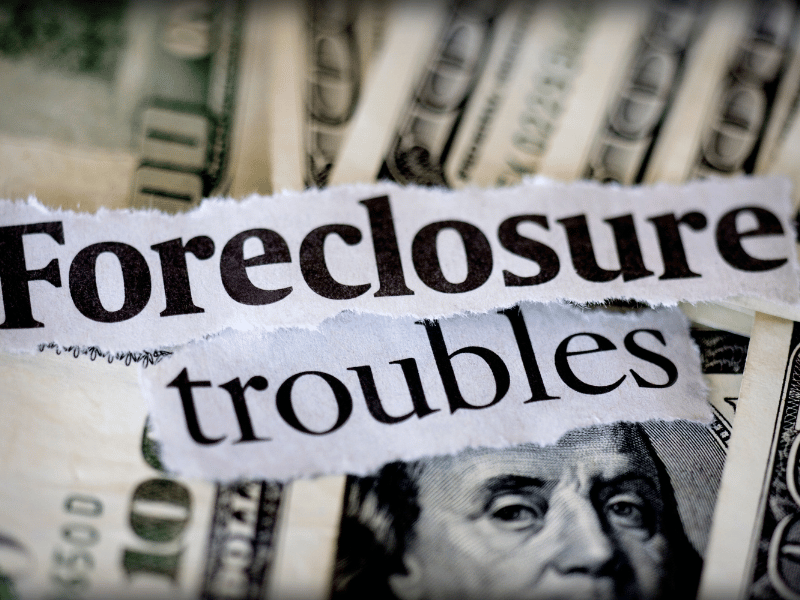Understanding Foreclosure In Florida
Selling your home in Florida in foreclosure can be daunting, especially if you are unfamiliar with the process. Knowing how to navigate through foreclosure in Florida is key to successfully selling your home.
Foreclosure is a legal process where the lender reclaims the property from you due to missed payments and other violations of the loan agreement. The foreclosure process begins when the lender files a lawsuit against you, called a lis pendens, and records it with the county clerk.
If you do not respond within a certain period of time, then a court will enter an Order for Final Judgment of Foreclosure and appoint an officer to sell the property at auction. In some cases, you may be able to work out a deal with your lender that allows you to keep ownership of your house.
If that isn’t possible, however, understanding foreclosure proceedings in Florida is essential. You must understand what documents are required by law for filing and how much money will be paid to complete the sale.
It’s also important to know about local laws or regulations that may affect your ability to sell at auction or how much money must be paid after a successful sale. Finally, it is critical that you understand any tax implications associated with selling your property during foreclosure so that you can make an informed decision about how best to proceed.
What Happens When A Home Goes Into Foreclosure?

When a home goes into foreclosure, it means that the homeowner has defaulted on their mortgage payments, and the lender has taken legal action to take possession of the property. In Florida, foreclosure proceedings begin with the lender filing a Notice of Default with the court, which starts the clock ticking on a timeline for homeowners to find an alternative solution.
If no settlement is reached within this timeframe, the lender will file for a foreclosure sale of the house. Once the court sets a sale date, lenders usually advertise the sale in local newspapers and other media outlets.
The property is then sold at auction to either another buyer or back to its original lender for an amount that covers any outstanding loan payments plus costs of sale. Afterward, homeowners are still liable for any remaining costs associated with their property and must vacate it within 24 hours of the sale being finalized.
The Pre-foreclosure Process And Timeline
Navigating Florida’s foreclosure process can be a daunting and overwhelming task. If you are in the unfortunate situation of selling your home due to foreclosure, it is important to become familiar with the pre-foreclosure process and timeline.
Depending on the circumstances, this process may start with a notification from the lender that they are planning to foreclose. At this stage, you typically have between 30 and 90 days to work out an agreement with your lender or find another way to avoid foreclosure.
If you cannot find a solution during this time frame, the lender will file a public foreclosure notice with the court. From there, you will typically have 20 days before a hearing is held in court.
The outcome of this hearing will determine if a foreclosure sale date is set and when it will occur. Understanding these steps and timelines is critical to avoid further complications or financial losses during this difficult time.
Steps To Take If You’re Behind On Payments
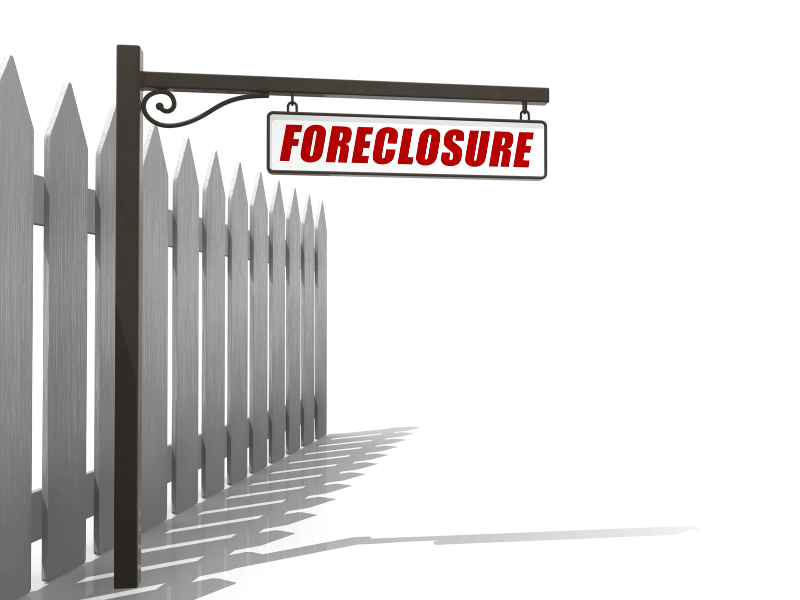
If you are behind on your payments, there are a few steps you will need to take if you are looking to sell your home in Florida. First, contact your lender and ask for an extension or to renegotiate loan terms.
If that is not possible, you may have to consider foreclosure. You will need to understand the process of foreclosure and how it works in the state of Florida.
Get familiar with the timeline and understand the costs associated with the process. Depending on your situation, hiring a real estate attorney who can help navigate the process for you may be beneficial.
Additionally, speak with a financial advisor who can advise you on any potential tax implications of selling your home in foreclosure. Consider all these steps before deciding to sell your home in foreclosure in Florida.
Benefits Of Selling A Home Before Foreclosure
Selling your Florida home before foreclosure is an excellent way to minimize the damage to your financial standing and take control of your fate. There are numerous benefits to selling a home before it enters foreclosure—from potentially avoiding a deficiency judgment to maintaining some control over the sale price and closing costs.
Taking proactive steps to sell your home can provide more options and allow you to recoup some losses. Additionally, if you’re able to sell before the house enters foreclosure, you may be able to avoid having the foreclosure appear on your credit report, which is beneficial for future financial opportunities.
Selling before foreclosure also allows sellers time to coordinate the move and ensure they receive their equity in the transaction. Lastly, if you need extra funds to cover legal fees, selling before foreclosure could also provide access to those resources.
Pros And Cons Of Selling A Home During Foreclosure
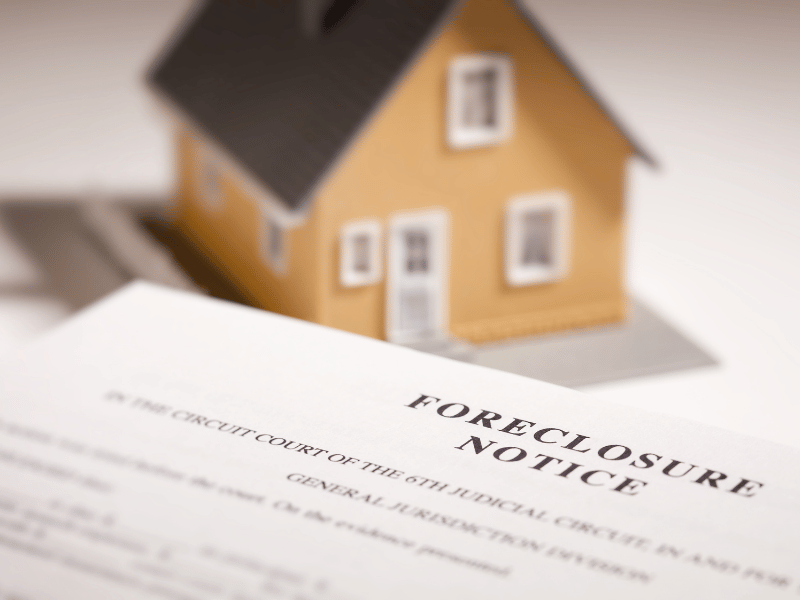
Selling a home during foreclosure can be difficult for many homeowners, as it is often challenging to navigate the complex legal landscape. On the one hand, selling a property during foreclosure can allow homeowners to walk away from their mortgages with less debt.
Additionally, if they can sell their homes at market value or above, they may even be able to pocket some of the proceeds. On the other hand, certain risks involved in selling a home during foreclosure must be taken into account.
For instance, homeowners may have difficulty finding buyers willing to purchase a property that is in foreclosure. They may also face difficulties if they cannot negotiate favorable terms with lenders before agreeing with prospective buyers.
Furthermore, any profits made from such a sale will still need to be reported to the IRS and could potentially result in an increased tax burden. Therefore, it is important for homeowners considering selling their homes in foreclosure to weigh all potential pros and cons before making any final decisions.
Challenges When Selling A Home In Foreclosure
When selling a foreclosure home, many challenges can arise. One of the biggest is understanding the legal ramifications of foreclosure and how it affects the sale of your home.
Additionally, you may be required to work with a lender or other third party to complete the sale. It’s important to know what paperwork is necessary when selling a foreclosure home and to ensure all documents are signed properly.
Beyond legal issues, you will also need to factor in the time it takes for a foreclosure sale to be completed and whether there are any special requirements for buyers who want to purchase your property. Finally, you should have an understanding of the market value for homes in foreclosure so you can ensure that you get the best possible price for your property.
Knowing what challenges lie ahead when selling your Florida home in foreclosure will put you in a better position for success.
Alternatives To Selling A Home During Foreclosure
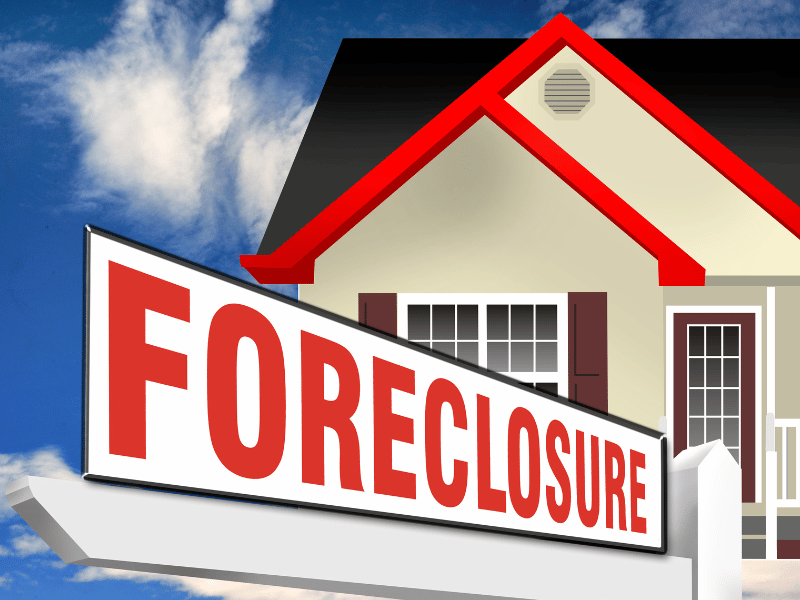
If selling your Florida home during foreclosure isn’t a viable option, several alternatives should be considered. Homeowners can explore loan modification programs to help them escape foreclosure and keep their homes.
Refinancing may be another option, depending on the homeowner’s finances and current interest rates. Other potential alternatives include deed-in-lieu of foreclosure, in which the homeowner transfers the property back to the lender, and short sale, in which the lender allows the homeowner to sell their home for less than they owe on it.
Depending on individual circumstances, each alternative has its advantages and disadvantages, so homeowners should consider them carefully before making any final decisions.
Calculating The Time For A Sale Before The Foreclosure Deadline
When selling your Florida home in foreclosure, timing is paramount. Knowing how much time you have before the foreclosure deadline is critical for ensuring a successful sale.
Calculating the time for a sale before foreclosure typically starts with understanding when the foreclosure process begins. This timeline varies depending on whether you are facing judicial or nonjudicial foreclosure, but generally speaking, a Notice of Default is sent out to homeowners who default on their mortgage payments when the process begins.
From this point, homeowners have approximately 90 days to settle their debts before the lender begins taking steps to foreclose on the property and take ownership. To maximize chances for a successful sale before that happens, it’s important to be aware of all available options and begin marketing your property as soon as possible.
Reaching out to real estate agents specializing in distressed properties can also help expedite the process and ensure you do everything possible to sell your Florida house before it’s too late.
Impact Of Short Sales On Credit Score
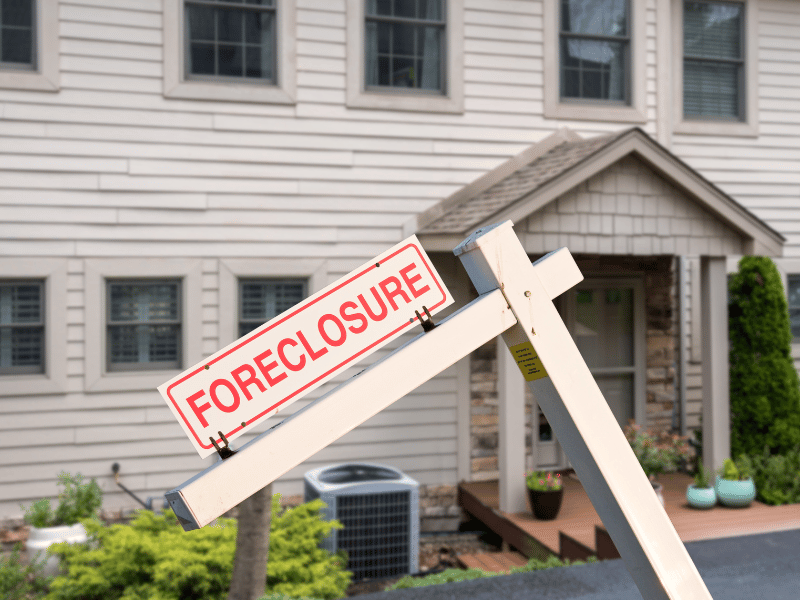
When a homeowner in Florida cannot meet their mortgage payments and enters into foreclosure, it can significantly impact their credit score. The foreclosure process involves the lender repossessing the home and selling it at auction.
This can be damaging to a person’s credit score, but there is another option that may be less damaging. Short sales are when the lender agrees to accept less than what is owed on the loan as payment in full for the debt, thus avoiding foreclosure.
While a short sale still negatively affects a person’s credit score, it is typically not as bad as a foreclosure. Additionally, homeowners who complete short sales may qualify for programs such as FHA Back to Work, which permits them to obtain new financing within 12 months of their short sale.
It is important for those considering a short sale to consider all the potential implications before making any decisions.
Legalities Of Selling Your Home During Pre-foreclosure
Selling your Florida home during pre-foreclosure can be a daunting task. It is important to understand the legalities involved before taking any action.
First, you should contact a local real estate attorney to discuss your options and get advice tailored to your situation. Depending on the mortgage terms, you may have the option of a short sale or deed instead of foreclosure, which could prevent damage to your credit score and allow you to avoid deficiency judgments.
Additionally, if you are current on payments and can demonstrate financial hardship, you may be able to take advantage of loan modifications or forbearance agreements that could help you keep your home without incurring more debt. However, it is vital to make sure all paperwork associated with selling or altering your loan is properly filed with the court for the process to move forward.
Ultimately, understanding the legalities surrounding foreclosure in Florida can help ensure a successful outcome when selling your home during pre-foreclosure.
What Are My Rights As An Owner After Receiving A Notice Of Default?
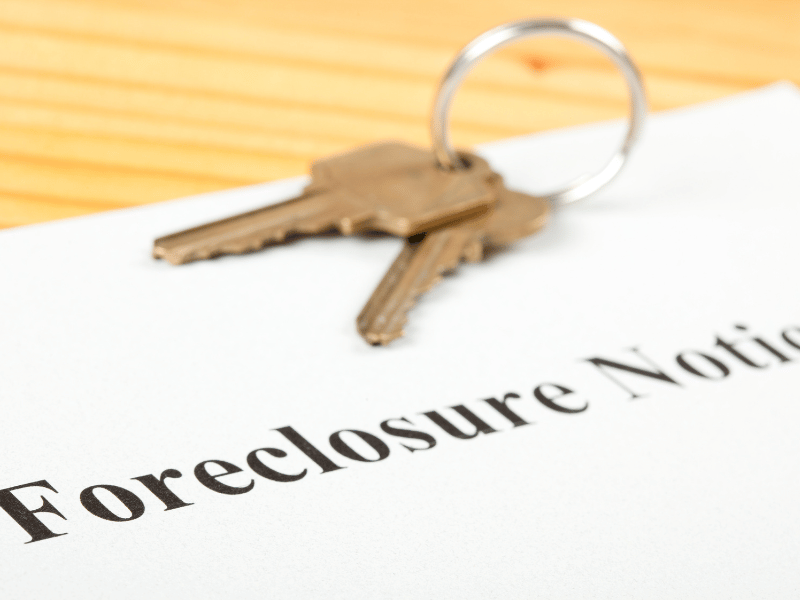
When a homeowner in Florida receives a Notice of Default, it is important to understand their rights as an owner. As an owner, the first right is the ability to reinstate the loan.
This means that if all payments and fees are paid by a certain date, ownership of the house can be maintained. However, if this isn’t feasible, the second option is to sell the house before foreclosure.
The property can be sold through a real estate agent or directly to investors who specialize in buying homes in foreclosure. If all other options fail, then foreclosure may take place, and the property will be transferred from the homeowner to their lender at auction.
It is important for owners to understand that while they do not have any rights after foreclosure, they will receive notice of when it will occur and have time to make decisions about selling before.
Strategies For Dealing With Mortgage Companies During The Pre-foreclosure Process
When a homeowner in Florida faces foreclosure, it is important to understand the strategies for dealing with mortgage companies during the pre-foreclosure process. Knowing how to communicate effectively and negotiate with lenders can make all the difference in the outcome of your situation.
Researching your options and understanding state laws are key to formulating a plan. Keeping detailed records of all communications should be done throughout the process since this will be important when negotiating with the lender.
You should also be aware that some lenders may offer loan modifications or other alternatives as a way to avoid foreclosure altogether. Exploring these options and asking questions is an important step in ensuring you understand your rights and responsibilities.
Lastly, knowing what resources are available for assistance, such as counseling, legal aid, and government programs designed specifically for homeowners dealing with foreclosure in Florida, is essential.
Role Of Mortgage Insurance When Selling A Home In Pre-foreclosure
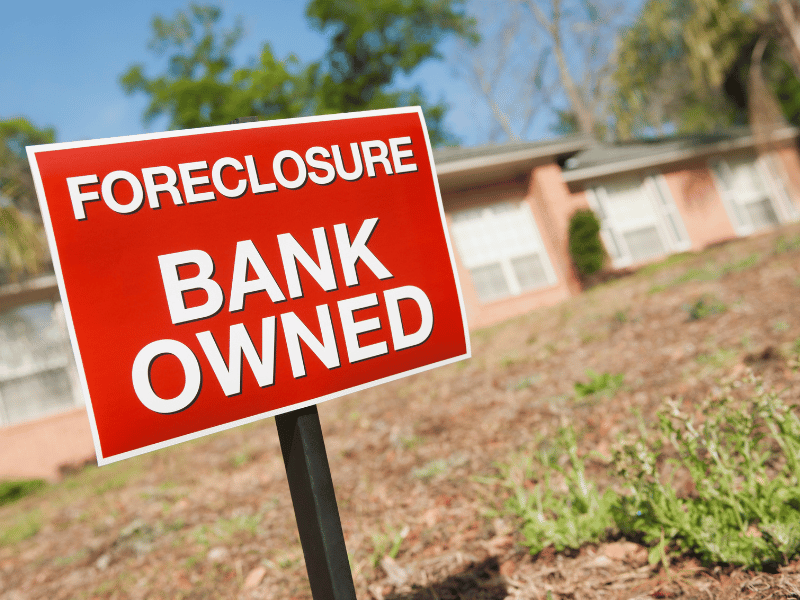
When selling a home in pre-foreclosure, mortgage insurance can play an important role. Mortgage insurance is designed to help protect the lender if a borrower defaults on their loan.
If the borrower cannot make their payments and the house goes into foreclosure, the mortgage insurance will cover some of the losses incurred by the lender. Understanding how mortgage insurance works and how it relates to selling a home in pre-foreclosure is important.
Generally speaking, mortgage insurance helps reduce a lender’s risk when issuing a loan. In most cases, lenders require borrowers to pay for private mortgage insurance (PMI) when they take out a loan with less than 20% equity or a down payment.
This type of coverage can help lower monthly payments and provide some protection for lenders should borrowers default on their loans. For homeowners facing foreclosure, understanding how PMI works can be key to successfully selling their property in pre-foreclosure.
Is It Possible To Stop The Foreclosure Process Once It Has Started?
It is possible to stop the foreclosure process once it has started in Florida, but it is important to understand the different aspects of the foreclosure process and how to navigate them. The first step for homeowners facing foreclosure is to reach out to their lender and negotiate a loan modification or repayment plan.
If an agreement can be made with the lender, they must adhere to the agreed-upon terms. If a homeowner cannot agree with their lender, they may wish to consider selling their property to avoid foreclosure.
Homeowners should be aware that if they choose this option, they will likely have less time than usual to market and sell their homes due to any deadlines imposed by their lender. Additionally, homeowners should be aware of any legal restrictions or regulations that may apply in their state when selling a house in foreclosure.
Finally, homeowners should work with an experienced realtor specializing in selling homes in foreclosure to help them navigate this process as easily as possible.
Tips For Increasing Your Chances Of Approval For A Short Sale

Selling your Florida house in foreclosure can be quite daunting, but it doesn’t have to be if you take the time to understand the process and what you need to do to increase your chances of approval for a short sale. It’s important to start off by researching the current market conditions and learning more about local trends that could impact the sale price and speed up the process.
Once you know what kind of market is out there, work with an experienced real estate agent who knows how to negotiate with lenders and who is familiar with Florida laws regarding foreclosure sales. Ensure all paperwork is complete and accurate before submitting it for review, as any discrepancies may delay or even prevent approval.
Additionally, providing proof of hardship that led to the foreclosure can help show that a short sale is in everyone’s best interests. Lastly, try to get pre-approval from the lender to provide it to potential buyers during negotiations.
All these tips will give you better odds for a successful short sale when selling your Florida house in foreclosure.
Advice From Experienced Realtors On How To Sell Your House In Foreclosure Florida Quickly
If you are facing foreclosure in Florida and need to sell your house quickly, experienced realtors can provide essential advice for navigating the process. From researching your options and understanding the timeline of foreclosure proceedings to preparing your home for sale, there are many steps you should take to ensure a successful outcome.
One of the most important tips is understanding what foreclosure means for you as a homeowner. While it can be stressful, it is important to understand that foreclosure does not mean you have no recourse when selling your home.
Additionally, it is wise to contact several local real estate agents who specialize in foreclosure sales and understand your property’s market value and what potential buyers may be willing to pay. Taking time to clean up and stage your house can also help get top dollar and speed up the process.
Knowing these factors can make the sale smoother and more profitable for both parties.
Impact Of Covid-19 On The Sale Of Homes In Pre-foreclosure
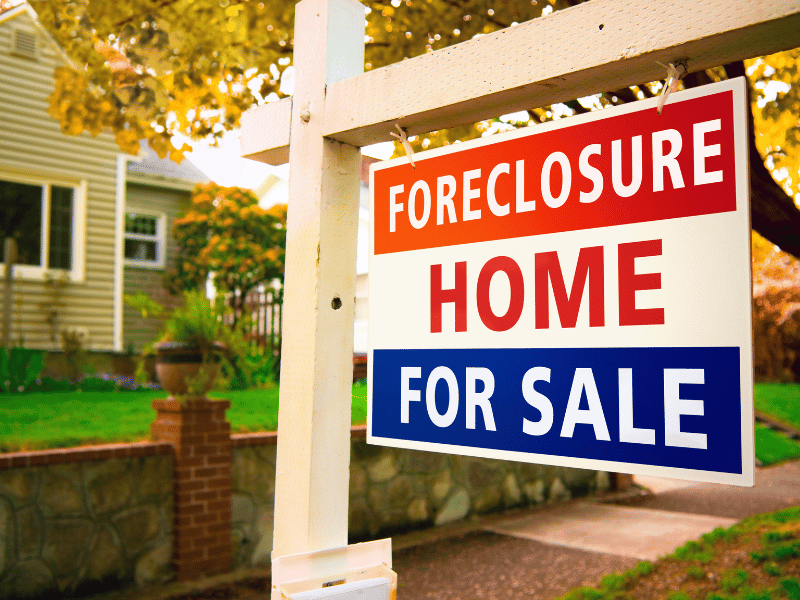
The COVID-19 pandemic has had a major impact on selling homes in pre-foreclosure, especially in Florida. With record unemployment and economic hardship, many homeowners cannot make their mortgage payments and face foreclosure.
This has caused an unprecedented increase in foreclosures across the state, causing a strain on the housing market. As a result, selling your Florida house in foreclosure is now more difficult than ever before.
Home buyers are reluctant to invest in properties facing foreclosure due to economic uncertainty and the fear of further drops in property values. Additionally, lenders are often unwilling to finance home purchases for those at risk of foreclosure due to decreased lending standards during this time.
It is important for homeowners facing foreclosure to understand the challenges they may face when attempting to sell their homes and how they can increase their chances of success.
How Do Foreclosure Sales Work In Florida?
Foreclosure sales in Florida work differently than in other states. In a foreclosure sale, the lender will return the property from the borrower and resell it to a third party.
The lender must follow certain procedures when selling a home in foreclosure in Florida, including filing a public notice of sale with the local clerk of court, publishing an announcement of the sale in a newspaper, and providing certain documents to all potential buyers. Potential buyers must also be aware that they may be responsible for any outstanding liens on the property and any costs associated with transfer tax or fees due at closing.
To ensure a successful foreclosure sale in Florida, it is important to understand your rights and obligations as both buyer and seller and work with an experienced real estate agent who knows the process inside and out.
How Long Do You Have To Move Out After Foreclosure In Florida?
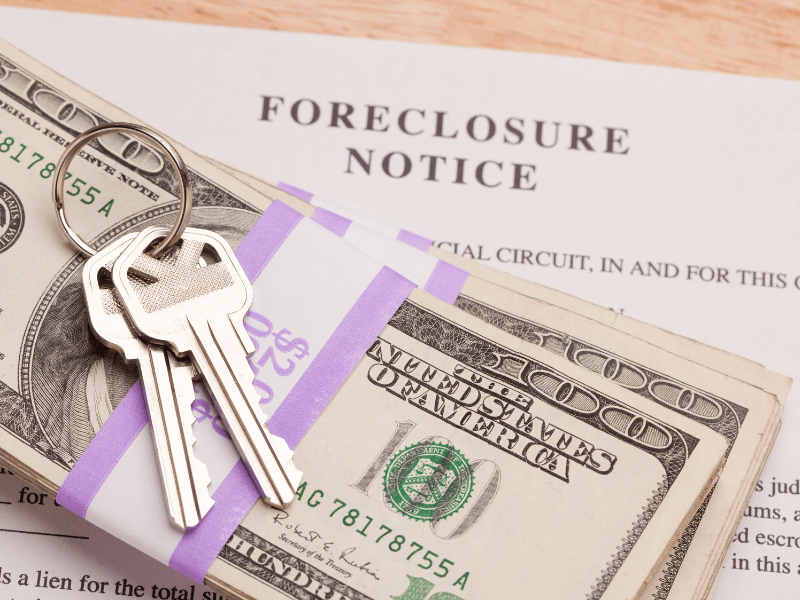
Foreclosure in Florida can be stressful, but it’s important to understand the timeline and know what to expect. In Florida, homeowners have a minimum of 45 days after the foreclosure sale to move out.
During this time, the homeowner must vacate the property and leave it in good condition. If they fail to do so, they may face additional financial penalties or even eviction proceedings from the new owner.
It’s also important to note that once a foreclosure is complete, some lenders may choose to foreclose quickly, while others take their time. Knowing when your foreclosure will be completed is essential for planning ahead and ensuring you are out of the house by the required date.
How Long Does The Average Foreclosure Take In Florida?
The average foreclosure process in Florida can take anywhere from 8 to 18 months, depending on the specific circumstances and complexity of the case. During this time, a homeowner facing foreclosure must stay informed of their rights and obligations so they can make the best decision about selling their Florida house.
The foreclosure process begins with a lis pendens filing by the lender, then proceeds through pre-foreclosure, auction, and post-foreclosure stages. After the lis pendens is filed, lenders typically allow homeowners 90 days to cure the delinquency before proceeding with foreclosure proceedings.
If a homeowner decides to sell their house during pre-foreclosure, they should act quickly because there are typically short timelines for selling before the property is auctioned. Once a property is placed at auction, it may be bought by an investor or another homeowner approved for financing.
If no one purchases it at auction, it will return to lender ownership and become a real estate-owned (REO) property. After a sale occurs or the property reverts to lender ownership, it can take up to two months before all documents have been finalized and recorded with the court system – thus concluding the foreclosure process in Florida.
Can A Foreclosure Be Stopped In Florida?
Yes, a foreclosure can be stopped in Florida. Depending on your loan type and financial situation, several options are available to help keep your home out of foreclosure.
The most common option is for the homeowner to make up any missed payments and bring the mortgage current. This may require you to get a loan or refinance your existing mortgage with more favorable terms.
Another option is a loan modification which can reduce the monthly payments or extend the length of the loan. Additionally, if you qualify for a federal program like HAMP, lenders can assist you in reducing your monthly payment amount.
It’s important that you consult with an experienced foreclosure attorney who can provide advice tailored to your specific situation and help guide you through all possible foreclosure alternatives.
Sell A House In Foreclosure In Florida
Sell A House Without A Realtor In Florida
Sell your house quickly in Florida without compromising on price! We offer the highest cash deals and stand by our offers—no renegotiations. Complete the form now to receive a fair cash offer and get cash for your house today!
| NON-JUDICIAL FORECLOSURE | FORECLOSING | FORECLOSURE AUCTION | MORTGAGE LENDERS | LUXURY | FOREBEARANCE |
| ATTORNEYS | LITIGATION | INFORMATION | BANKRUPTCY | BANKRUPTCY LAW | FSBO |
| FOR SALE BY OWNER | CREDIT HISTORY | COURTS | INCOME | HOMELIGHT | HOME EVICTION |
| EMAILS | REAL ESTATE INVESTORS | COMPANY | ASSET | SHERIFF | REPOSSESSED |
| NOTHING | EXPENSES | CALIFORNIA | YOU CAN SELL | ON YOUR MORTGAGE | YOUR MORTGAGE PAYMENTS |
| THE LENDER TO | REAL ESTATE MARKET | CAN HELP YOU | YOU CAN SELL YOUR | CAN SELL YOUR HOME | ON YOUR MORTGAGE PAYMENTS |
| CAN I SELL MY | THE FLORIDA FORECLOSURE PROCESS | IN A SHORT SALE |

